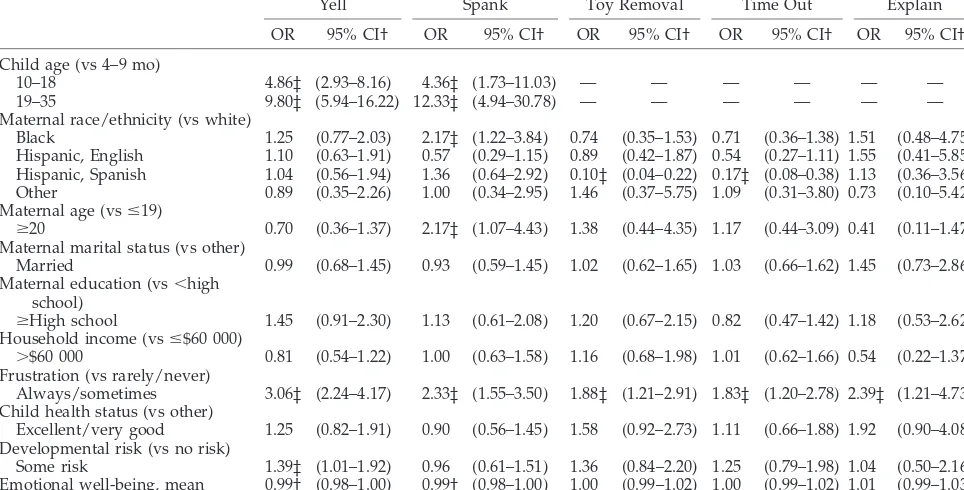Parents’ Discipline of Young Children: Results From the National Survey of Early Childhood Health
Full text
Figure




Related documents
In all locations, adolescents aged 12-17 were the most likely to receive needed mental health services, with receipt of these services ranging from 60.5 percent of those in
Health Insurance Coverage: Early Release Estimates Based on Data from the National Health Interview Survey is published quarterly and provides additional estimates of health
Therefore, in the main sample, all households with children of this age were asked to complete the survey, as opposed to the oversample telephone numbers, which were asked
This paper contains the results of a research work is to investigate the impact of organizational learning on human resource development Payamenoor in Fars province to survey
Nghiên cứu đặc điểm sinh sản của mọt ngô Sitophilus zeamais nhằm làm rõ sức đẻ và nhịp điệu đẻ trứng của chúng trong thời gian sống, điều này làm cơ
Senior management contributes substantially to a bank’s sound corporate governance through personal conduct (eg by helping to set the “tone at the top” along with the board)
Identify and describe the 3 elements of Early Childhood Inclusion as defined by National Association for the Education of Young Children (NAEYC) and the Division of Early
– “Early Childhood Curriculum, Assessment, and Program Evaluation,” National Association for the Education of Young Children (NAEYC) and National Association of Early